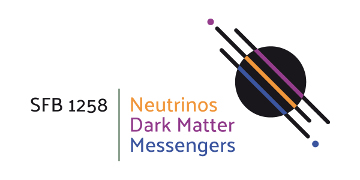Particle physics explores the fundamental questions of the universe: What is the world made of? What holds it together at its core? What is dark matter - and can we create it in the lab? To solve such mysteries, particles are collided at nearly the speed of light, 40 million times per second, and measured with around 100 million individual sensors. AI-powered algorithms are key to handling this data deluge - but they require vast amounts of simulated training data. The simulation calculations, which are currently computationally extremely intensive and slow, thus become a bottleneck for new discoveries.
The LEGO project
This is exactly where Prof. Lukas Heinrich’s LEGO project comes in: He aims to significantly accelerate the process and extract much more information from each individual simulation. To do this, he uses a novel method that works similarly to AI language models: it directly predicts the next most likely particle. This could enable not only more precise analysis of existing data, but also the development of far more effective particle detectors in the future - raising the chances for groundbreaking discoveries in physics
Further links
News of the TUM School of Natural Sciences
Contact
Prof. Dr. Lukas Heinrich
Technical University Munich / Excellence Cluster ORIGINS
email: l.heinrich(at)tum.de



